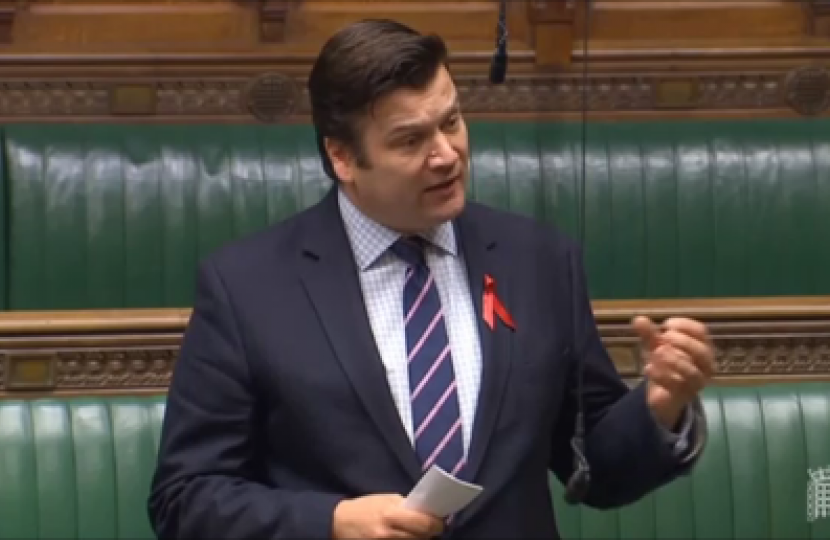
James Heappey MP has written an article for The House Magazine, focusing on the Clean Growth Strategy and creating a greener future in this country.
The unveiling of the Clean Growth Strategy was an important moment for those of us who believe that a zero carbon future is both environmentally and economically sound. In tandem with the Industrial Strategy – which has clean growth at its core – we now have an unequivocal message on how committed the Government is to hitting our emissions targets as well as how important the clean tech industry will be to our future economy.
This has brought with it a refreshing change in the language used in the ‘Green’ debate as for too long decarbonising has been seen as an expensive process simply to tackle anthropogenic climate change. As Claire Perry has rightly been noting in her speeches, the reality is that the UK has managed to cut its emissions faster than any other G7 country whilst leading that group in national income growth over the same period. So too has the ‘Energy Trilemma’ been slain as the exponential improvement in technology and the attendant cost reductions mean that decarbonising is no longer in conflict with either our energy security or the cost of energy to consumers.
Instead, business and residential customers alike are increasingly seeing the benefits of installing clean tech in their homes or workplaces. LED lights are better for the environment but they’re also cheaper to operate and they last longer too. Systems like Hive can deliver heating and lighting more efficiently and thus with less carbon, but they’re also delivering savings on bills and consumers see real value in having that degree of control. And whilst electric vehicles will bring huge benefits to air quality in our towns and cities, they’ll also bring down the cost of motoring significantly for the consumer too.
Add to that the growing number of people and businesses who have some form of energy generation on site, the understanding of the value of waste heat, the value of greater insulation or efficiency measures, and the opportunities to monetise un-needed energy through Demand Side Response contracts and we’re starting to see a market that is no longer driven by guilt over climate change.
This is long overdue as the acceleration of our decarbonisation required more than the engagement of environmentalists and tech early adopters. For many consumers, however, this damascene moment is not even prompted by a search for cheaper bills. Instead, millions of people have bought - or been given for Christmas - an Amazon Echo or Google Home smart speaker. As they’ve played with its functionality, smart thermostats for radiators, smart light bulbs, smart immersion heaters, and smart home appliances have all started to make sense in a way that no Government (or energy industry) campaign could ever have achieved.
The more and more consumers bring these internet of things enabling technologies into their homes, the more they’ll seek to take advantage of the functionality. In doing so, they’ll find that they’re able to run their homes more affordably because the algorithms are spotting waste and seeking to deliver comfort based on their growing knowledge of the way we live.
As the market for electric vehicles grows, consumers will become even savvier in their engagement with the energy system and they’ll be keen to ensure their homes, their businesses and the places they visit have the clean tech installed to allow them to charge their cars as cheaply as possible. This in turn might prompt those places to ask what value they can find in having lots of batteries plugged in to their superstore or multi-story carpark. Are we, for example, only a few years away from getting free parking if we let NCP sell some of the power from our EV battery to the grid to balance the system during periods of high demand? Or perhaps Tesco will install solar car ports and give us all a free charge providing we’re in the shop long enough? Or perhaps Asda will find it cheaper to power a store during the evening peak by drawing some energy from their customers EVs and credit the value of that power to their bills when they get to the checkout?
The strong growth that we all foresee in clean tech will not be the product of greater awareness on climate change. Nor, in the first instance, will it be about cost savings. Instead, smart technologies in the home and business will make us increasingly aware of the functionality they bring in comfort and convenience, then we’ll start to spot the reduction in our energy usage and therefore our bills. There will be some in the green lobby who would argue that we want people to know that they’re decarbonising and why that is important. I disagree. I think those of us who focus our energies on delivering a cleaner and greener future should be more than happy to lose that battle, if we’re going to win the war.
